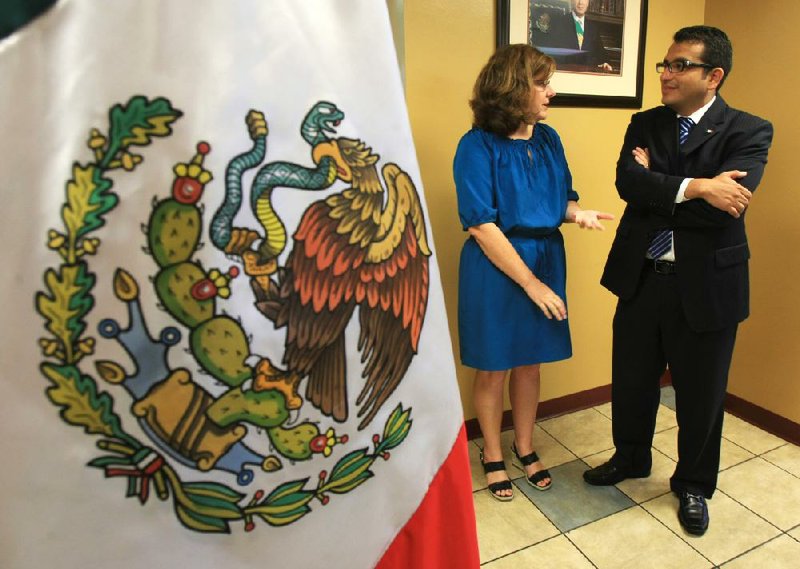LITTLE ROCK — The Mexican Consulate in Little Rock is one of four selected by Susan G. Komen for the Cure to pilot a breast cancer education program designed to address the cultural and health needs of Hispanic immigrants, the two organizations announced Tuesday.
The consulate, which serves Mexicans living in Arkansas, will use a $50,000 grant from the national breast cancer foundation to hire a public health educator to travel to events throughout the state, educating women about the detection and treatment ofbreast cancer.
“The purpose of this funding is to address breast-health barriers that are unique to the Hispanic population and to provide a model that can be used in other states,” said Sherrye McBryde, executive director of Komen’s Arkansas affiliate.
Komen plans similar one-year partnerships with Mexican consulates in San Diego, Dallas and San Antonio, McBryde said at the consulate.
Komen plans to use information gleaned through the partnerships for a new effort aimed at Hispanicwomen that it will launch in 2013, the organization said in a news release.
In Arkansas, the new focus on breast health expands on an existing public-health partnership between the consulate, which also serves Tennessee and Oklahoma, and the University of Arkansas for Medical Sciences.
Through “Ventanilla de Salud” - which is Spanish for “health window” - UAMS and the consulate have provided general health education, screening programs and referrals for needed services to more than 30,000 consulate visitors annually since 2010, UAMS said.
“Our Latino population is a high-risk population for breast cancer,” said Dr. James Raczynski, dean of the UAMS College of Public Health.
That’s because Hispanic immigrants in Arkansas are less likely to be insured and less likely to seek preventative health screenings, he said.
There are also cultural barriers, Raczynski said, such as a reluctance for some immigrant women to see male doctors for breast examinations.
Many immigrant women who are in the country illegally also delay cancer screenings for fear of deportation or out of concern they will not be able to afford treatment if an issue is detected, McBryde said.
“If we find it in the early phases, they will have a much higher chance of survival,” she said.
The health educator hired with the grant funding will help connect women with community resources thatprovide screenings and treatment for free or at a reduced cost, McBryde said.
Mexican Consul David Preciado welcomed the addition to the partnership Tuesday.
“Cancer doesn’t stop because of nationality, race, gender or socioeconomic status,” he said.
The Ventanilla de Saludprogram was created by the Ministries of Health and Foreign Affairs of Mexico in 2003 to increase health literacy, disease prevention and health promotion in the Mexican and Hispanic communities.
All 50 Mexican consulates in the United States have partnered with local entities to develop the program.
Northwest Arkansas, Pages 7 on 07/11/2012

